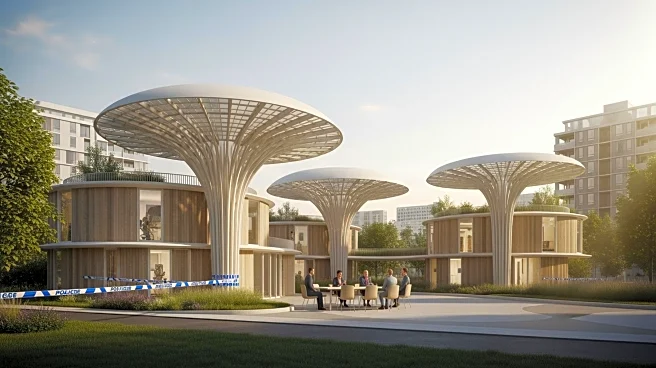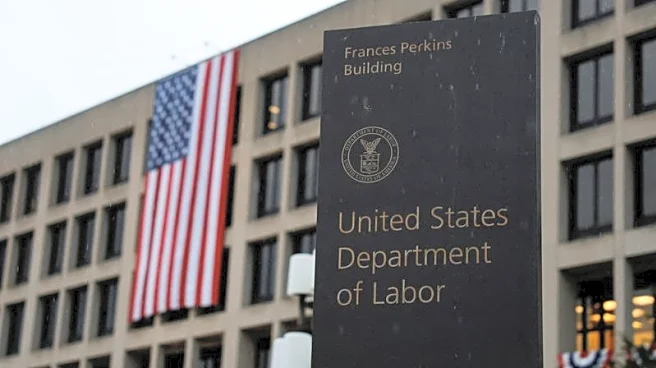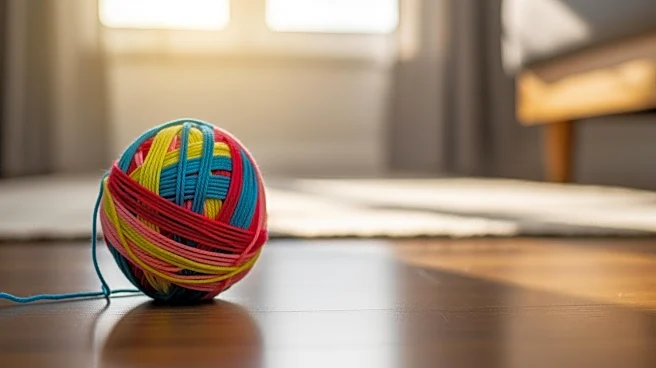What's Happening?
MycoTile, a Nairobi-based company, is producing sustainable building panels from mushroom mycelium and agricultural waste. These panels offer an eco-friendly and cost-effective alternative to traditional
construction materials, such as brick and mortar. The panels are used for roof and wall insulation and are priced at roughly two-thirds of the cost of standard materials, while providing comparable quality. The company produces nearly 3,600 square yards of panels monthly, and the affordability of these panels is highlighted by a street vendor who paid $208 for panels for her 161-square-foot home. MycoTile's founder, Mtamu Kililo, emphasizes the product's ability to reduce construction costs and lower the carbon footprint due to its biodegradable composition. Kenyan authorities are supporting local innovation in decarbonizing construction by granting MycoTile access to machinery at the Kenya Industrial Research and Development Institute. The company repurposes around 250 tons of agricultural waste annually, further reducing environmental impact.
Why It's Important?
The development of mushroom-based building panels by MycoTile represents a significant advancement in sustainable construction practices. By offering a lower-cost and environmentally friendly alternative to traditional materials, MycoTile addresses Nairobi's housing shortage, which is estimated to be at least 2 million units. The use of agricultural waste and mushroom mycelium not only reduces construction costs but also contributes to lowering the carbon footprint of building projects. This innovation aligns with global efforts to decarbonize the construction industry and promote sustainable development. The support from Kenyan authorities highlights the importance of local innovation in achieving environmental goals and addressing housing deficits.
What's Next?
MycoTile's approach to sustainable construction may inspire similar innovations in other regions facing housing shortages and environmental challenges. As the company continues to scale production, it may explore partnerships or expansions to increase its impact. The support from Kenyan authorities could lead to further investments in sustainable construction technologies, potentially influencing policy changes that prioritize eco-friendly building practices. Additionally, the success of MycoTile's panels could encourage other companies to explore the use of biodegradable materials in construction, further advancing the industry's sustainability goals.
Beyond the Headlines
The use of mushroom mycelium in construction materials presents an opportunity to explore the broader applications of fungi-based products in various industries. This innovation could lead to advancements in biodegradable packaging, textiles, and other sectors seeking sustainable alternatives. The cultural shift towards eco-friendly materials may also influence consumer preferences and drive demand for products that minimize environmental impact. As awareness of sustainable practices grows, companies like MycoTile could play a pivotal role in shaping the future of construction and other industries.










